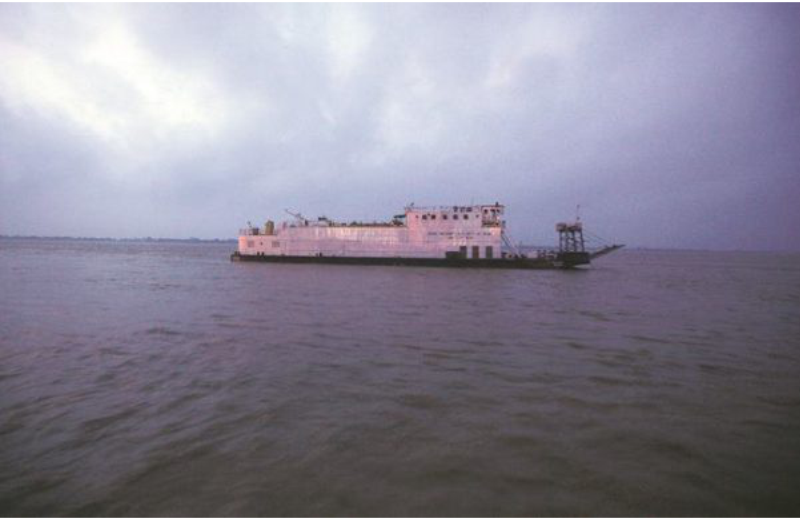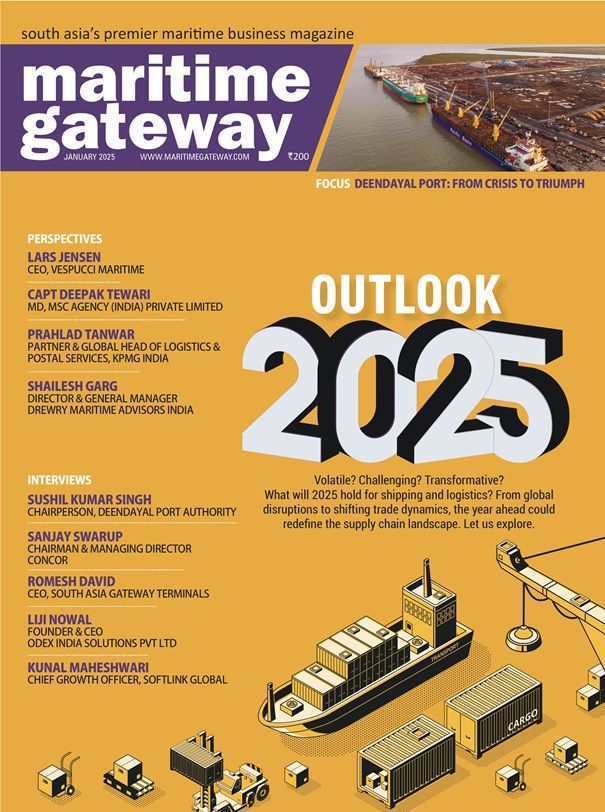Inland Waterways Authority of India (IWAI) will make its foray into Public-Private Partnership (PPP) as it hands over the operation and management of its terminals in Kolkata to Summit Alliance Port East Gateway (India) Pvt. Ltd (SAPEL) on a supply, operate and maintain (SOM) model. The handing over will be done in the presence of Shipping Secretary, Mr Gopal Krishna, at an event in Kolkata.
The terminals GR Jetty-I and BISN and GR Jetty-II of Inland Water Transport (IWT) will be handed over to SAPEL for equipping, operating and managing on a revenue sharing model. The operator will have the right to collect user fees from the users as per the tariff rates notified by IWAI. The contract will be valid for a period of 30 years. SAPEL was awarded the contract in August, 2017 under a revenue sharing arrangement of 61.70 per cent to itself and 38.30 per cent to IWAI through a global tendering process for this work for Garden Reach Terminal in Kolkata and Gaighat and Kalughat Terminal in Patna. Being the first PPP project undertaken by IWAI under SOM model, the event paves the way for private investment in the development of IWT in India.
The IWT terminals GR Jetty-I and BISN and GR Jetty-II are spread over 30,409.64 square metres and 14,557 square metres, respectively, and have two permanent RCC jetties and one floating jetty besides a Roll on-Roll off terminal. The transportation of trucks on vessels from BISN jetty to Sankrail on the bank, and participation of private sector in the operation and management of the facilities will improve the operational efficiency of the jetties.
According to IWAI Chairman, Mr Pravir Pandey, under the transactional structure worked out by International Finance Corporation (IFC), the operator will undertake the operations and maintenance services at both Kolkata and Patna clusters and invest in cargo handling equipment, container handling equipment and warehousing. The operator will also provide labour, professionals, supervisory, and managerial personnel for performance of operations and maintenance services. The proposed project will facilitate a modal shift of up to 55 per cent of the potential cargo in the catchment area to IWT mode. Existing potential of anchor cargo is of 56,000 TEUs (to/from catchment area) during the base year and expected to grow to 250,000 TEUs over next 15 years. The current handling capacity of the terminal is 1.6 MT which includes bulk and break-bulk cargo. The operator is expected to increase this capacity by three times in the next five years.
The development of both Kolkata and Patna terminals is being undertaken with a view to tap the huge potential of Nepal-bound containerised cargo on NW-1. While the available cargo upstream (for Nepal) at present is 44,000 TEUs, the cargo potential downstream stands at 12,000 TEUs.
Barging from Kolkata to Patna will lead to cost saving by approximately 24 per cent and 4 per cent as compared to road and rail, respectively, when return cargo is available. Barging from Kolkata to Kathmandu will lead to cost savings by approximately 13 per cent and 26 per cent as compared to road and rail, respectively, when return cargo is available from around Patna.
A periodic and reliable barge shuttle service between the two terminals will cater to freight movement between Kolkata and Patna. Hinterland catchment area of Bihar and Nepal will also be served through this route. The barge shuttle will act as a cargo feeder/evacuation channel of Kolkata port to the hinterland. Patna (Kalughat) terminal, when ready, could act as an extended gate of Kolkata Port. The shuttle service could also act as a feeder or evacuation channel to Dhamra Port in future.
The Kolkata terminals will also facilitate domestic bound and exim cargo for North-Eastern region and Bangladesh even as it will prove advantageous for shippers plying on the Indo-Bangladesh Protocol Route. On October 25, 2018, India and Bangladesh signed milestone agreements to deepen their maritime relationship. Kolaghat (West Bengal, India) and Chilmari (Bangladesh) were declared as new ports of call. Besides this, an agreement for the use of Mongla and Chattogram port (Bangladesh) for transiting goods to and from India and passenger and cruise vessels from Kolkata to Dhaka and Guwahati through the protocol route were also agreed on.







